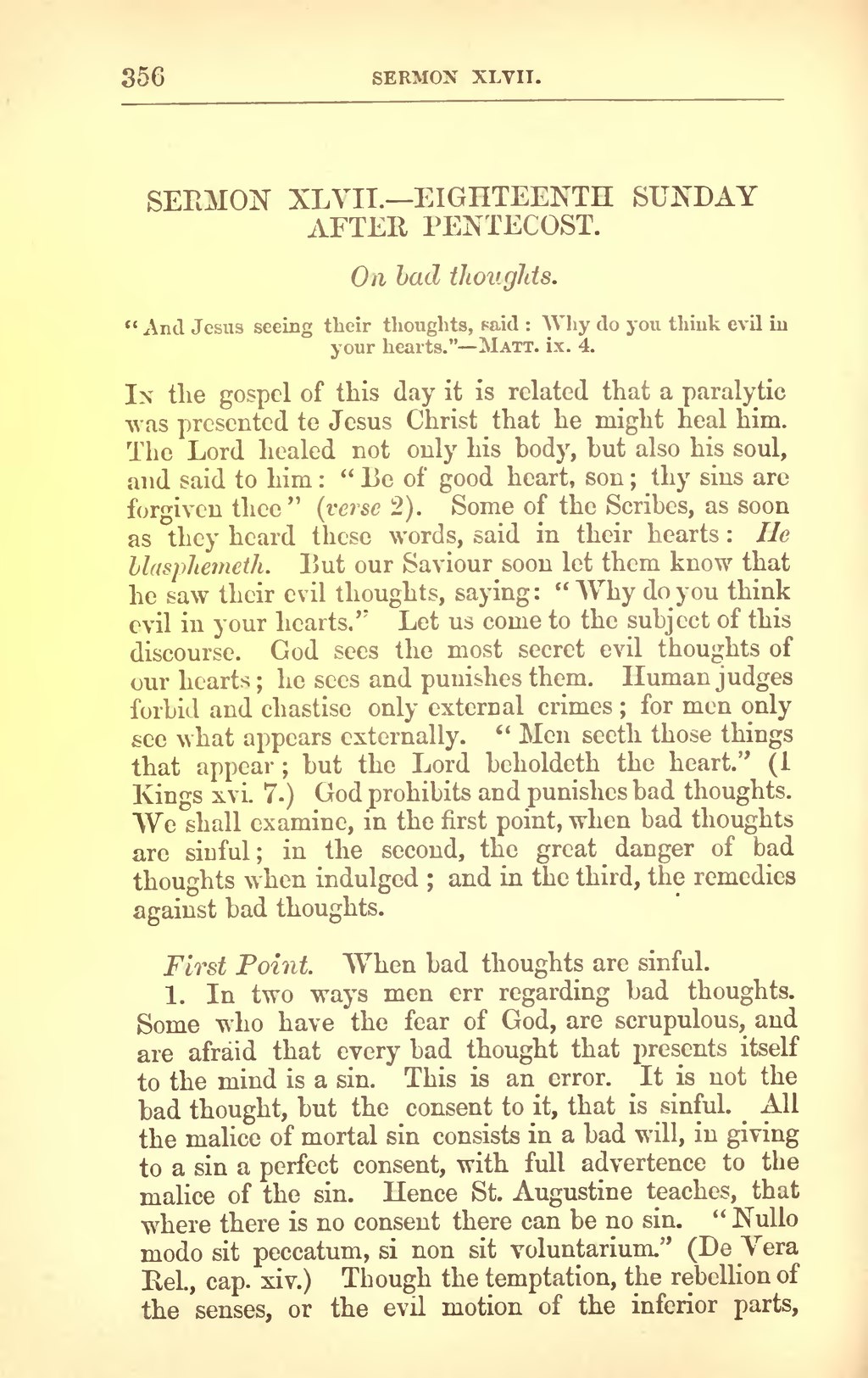SERMON XLVII. EIGHTEENTH SUNDAY AFTER PENTECOST.
ON BAD THOUGHTS.
" And Jesus seeing their thoughts, said: Why do you think evil in your hearts." MATT. ix. 4.
IN the gospel of this day it is related that a paralytic was presented to Jesus Christ that he might heal him. The Lord healed not only his body, but also his soul, and said to him: ” Be of good heart, son; thy sins are forgiven thee" (verse 2). Some of the Scribes, as soon as they heard these words, said in their hearts: He blasphemeth. But our Saviour soon let them know that he saw their evil thoughts, saying: "Why do you think evil in your hearts. ” Let us come to the subject of this discourse. God sees the most secret evil thoughts of our hearts; he sees and punishes them. Human judges forbid and chastise only external crimes; for men only see what appears externally. ” Men seeth those things that appear; but the Lord beholdeth the heart." (1 Kings xvi. 7.) God prohibits and punishes bad thoughts. We shall examine, in the first point, when bad thoughts are sinful; in the second, the great danger of bad thoughts when indulged; and in the third, the remedies against bad thoughts.
First Point. When bad thoughts are sinful.
1. In two ways men err regarding bad thoughts. Some who have the fear of God, are scrupulous, and are afraid that every bad thought that presents itself to the mind is a sin. This is an error. It is not the bad thought, but the consent to it, that is sinful. All the malice of mortal sin consists in a bad will, in giving to a sin a perfect consent, with full advertence to the malice of the sin. Hence St. Augustine teaches, that where there is no consent there can be no sin. ” Nullo modo sit peccatum, si non sit voluntarium." (De Vera Rel, cap. xiv.) Though the temptation, the rebellion of the senses, or the evil motion of the inferior parts,

